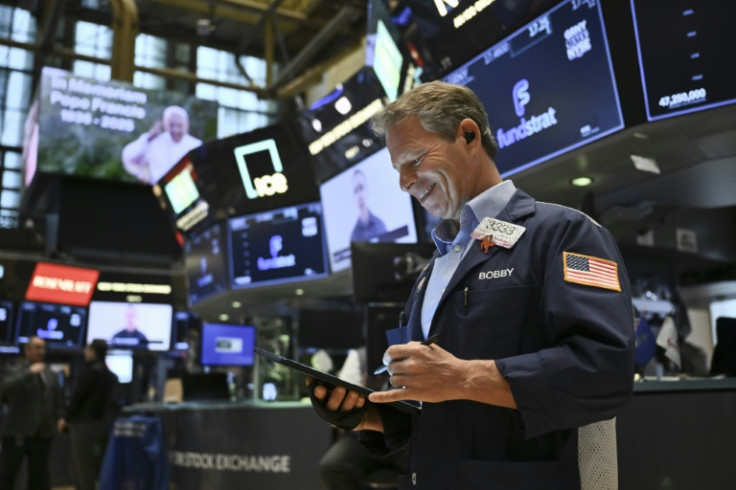Wall Street Rallies Despite Tariff Shock As Tech Stocks Power Ahead

U.S. stock markets rallied Thursday even as a sweeping new wave of tariffs officially came into effect. Investor optimism, driven largely by tech sector strength and expectations of Federal Reserve support, helped lift all major indexes.
The Dow Jones Industrial Average rose by 0.75%, the S&P 500 gained 0.85%, and the Nasdaq Composite jumped 1.3%, marking one of the strongest sessions since late July. The rally was fueled in large part by technology stocks, which have been viewed as potential beneficiaries of tariff exemptions due to their increasing domestic investment.
According to Reuters, Apple Inc. saw its stock rise another 2.4% on Thursday, following a 5.1% surge on Wednesday. The gains came after the company announced a $100 billion expansion of its U.S. manufacturing operations, bringing its total domestic investment to over $600 billion. This move is widely believed to have secured Apple an exemption from the new tariffs imposed by the Trump administration.
Other major tech players also posted gains. Shares of Nvidia climbed 4.6%, Broadcom increased by 3.8%, and AMD rose 2.9%, amid optimism that U.S. semiconductor firms would be partially shielded from the impact of the tariffs.
The market's positive momentum was further supported by expectations that the Federal Reserve may move toward interest rate cuts if trade pressures begin to weigh on growth. As reported by Reuters' Morning Bid, traders are now pricing in a higher probability of one or two rate cuts before the end of the year, following recent comments from Fed officials indicating a more dovish stance.
However, the upbeat tone was not universal across all sectors. Pharmaceutical giant Eli Lilly saw its shares fall more than 11% after it reported weaker-than-expected results for its obesity treatment. As noted in the Wall Street Journal's live market coverage, the drop was attributed to disappointing clinical trial outcomes and delays in product rollout.
Despite Thursday's strong showing, concerns remain about the broader economic impact of the Trump administration's expansive new tariff regime. As outlined by AP News, the average tariff rate on U.S. imports has now reached levels not seen since the 1930s. Key trading partners, including the European Union, India, and Brazil, are reportedly considering retaliatory measures, adding uncertainty to the global economic outlook.
Looking ahead, markets will be watching closely for further guidance from the Federal Reserve, particularly at the upcoming Jackson Hole symposium later this month. Additionally, the next round of corporate earnings, especially from the retail and industrial sectors, will offer more insight into how companies are adjusting to the shifting trade landscape.
© Copyright IBTimes 2024. All rights reserved.




















